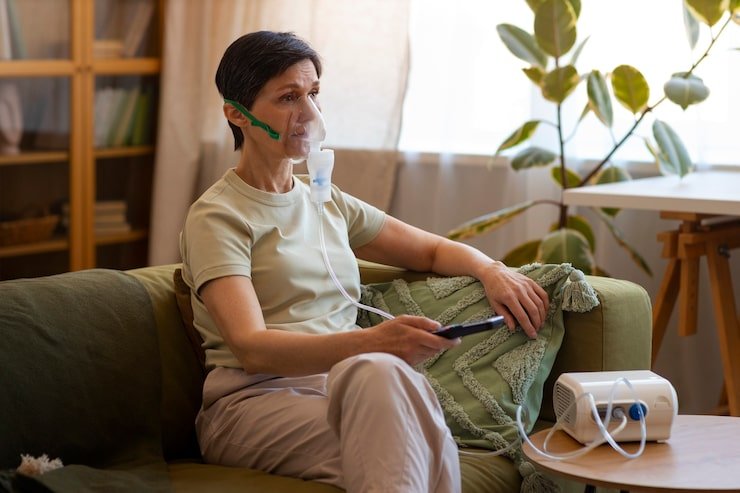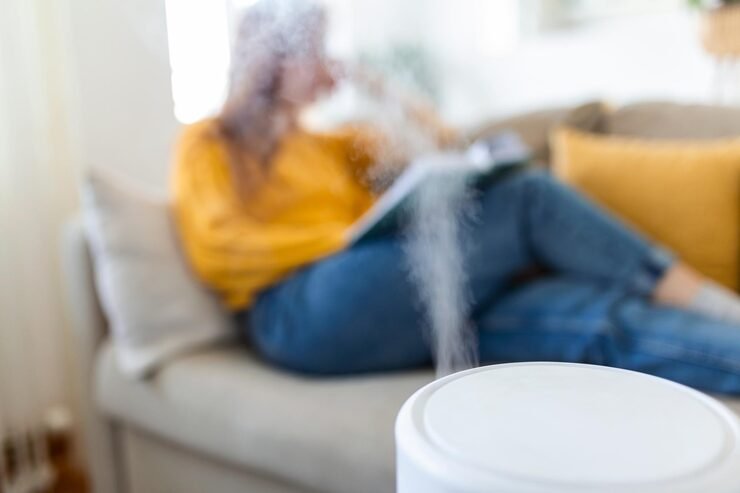How Mold, VOCs, and Allergens Affect Your Indoor Air—and Your Health
- admin323029
- Blog

When you think about health, the air inside your home might not be the first thing that comes to mind. But it should be. From mold spores to volatile organic compounds (VOCs) and common allergens, indoor air can quietly influence your well-being every single day. If you live in areas like Massachusetts or New Hampshire, where homes are tightly sealed during colder months, the risk of poor indoor air quality is even greater.
This post explores the real impact of mold, VOCs, and allergens on your focus keyword—your indoor air quality—and how they can affect your family’s health. You’ll learn how to identify problems, what steps to take, and when to consider professional air quality testing.
Why Indoor Air Quality Matters
Indoor air quality (IAQ) isn’t just about comfort—it’s directly tied to your short- and long-term health. According to the EPA, indoor air can be two to five times more polluted than the air outdoors. That’s a big deal considering most people spend 90% of their time indoors.
The presence of pollutants like mold, VOCs, and allergens can cause everything from minor irritations to chronic illnesses. Poor focus keyword can lead to fatigue, headaches, sinus infections, and worsen conditions like asthma or allergies. Understanding what’s in your air is the first step toward a healthier home.
How Mold, VOCs, and Allergens Harm Your Focus Keyword—Indoor Air Quality
Mold: The Silent Invader
Mold is a common yet often invisible threat. It thrives in damp, humid environments—basements, bathrooms, crawlspaces—and spreads by releasing microscopic spores into the air. When inhaled, these spores can trigger allergic reactions, respiratory problems, and even immune system disorders.
In older homes across Massachusetts or high-moisture areas of New Hampshire, hidden leaks and poor ventilation create ideal conditions for mold. If you notice musty odors, discoloration on walls, or persistent coughs and sneezing indoors, it’s time to investigate. Mold drastically lowers focus keyword and is one of the most common findings during professional air quality testing.
VOCs: Invisible but Toxic
Volatile Organic Compounds (VOCs) are gases emitted from everyday household products—cleaners, paints, adhesives, new furniture, and flooring. Unlike mold, VOCs are often odorless. Long-term exposure to VOCs can lead to headaches, nausea, dizziness, and even liver or kidney damage.
In newly renovated homes or recently purchased properties in areas like Boston or Concord, VOCs can linger in indoor air for weeks or months. These chemicals directly compromise your focus keyword and are often overlooked without proper testing. If you’ve recently renovated or added new furnishings, VOC testing is strongly recommended.
Allergens: Everyday Irritants
Allergens like dust mites, pollen, and pet dander are common in almost every home. However, in tightly sealed or poorly ventilated spaces—such as those found in many New England homes—they accumulate quickly and recirculate through HVAC systems.
Allergens can make life uncomfortable for those with asthma or seasonal allergies. Symptoms often flare indoors and subside when you step outside, which is a clear sign your focus keyword is compromised. Regular cleaning, air purifiers, and filter changes help, but comprehensive air testing provides a full picture.
What Are the Health Effects of Poor Indoor Air?
Poor focus keyword doesn’t always cause immediate symptoms. Often, the effects build over time. That’s why it’s known as a “silent” threat. Common health issues related to indoor pollutants include:
-
Fatigue and lack of concentration
-
Headaches and dizziness
-
Coughing, sneezing, and sinus congestion
-
Skin irritation or rashes
-
Asthma attacks or allergic reactions
-
Long-term risks like respiratory disease or cancer
Children, seniors, and individuals with compromised immune systems are most at risk. In towns like Melrose, Nashua, or Woburn, seasonal shifts mean residents often close windows for extended periods, further reducing ventilation and trapping contaminants indoors.
How to Detect and Fix Poor Air Quality
The first step to addressing indoor air pollution is recognizing the signs. If you regularly experience unexplained symptoms or notice strange odors, get your air tested. Air quality testing evaluates levels of mold spores, VOCs, allergens, and other contaminants, giving you clear, actionable insights.
Once problems are identified, solutions might include:
-
Installing HEPA air purifiers
-
Repairing leaks and using dehumidifiers
-
Removing mold and replacing contaminated materials
-
Ventilating the home more often
-
Switching to low-VOC cleaning and building products
If you’re located in Massachusetts or New Hampshire, it’s especially important to address these issues before winter when you’re indoors the most.Why Professional Air Quality Testing Makes a Difference
DIY air test kits offer limited insight and often miss critical data. Professional air quality testing is thorough, accurate, and gives you peace of mind. Experts use lab-verified results to detect what you can’t see or smell.
At Elite Home & Mold Inspections, we’ve worked with homeowners across Massachusetts and New Hampshire to improve air quality and resolve underlying issues. Whether it’s mold behind your walls or VOCs from a recent remodel, our testing reveals what’s affecting your indoor environment.
The Bottom Line
Mold, VOCs, and allergens aren’t just nuisances—they’re health risks that compromise your indoor air quality and overall well-being. Left unchecked, they can cause long-term damage to both your health and your home.
If you’re a homeowner in Massachusetts or New Hampshire, don’t wait until symptoms appear or worsen. Take a proactive approach. Understanding your focus keyword helps you make informed decisions and create a healthier space for your family.
Book your professional air quality test today and take the first step toward safer indoor air.
FAQs About Focus Keyword and Indoor Air Quality
1. What is the focus keyword in relation to air quality?
The focus keyword refers to the main search term or topic your content centers on—in this case, indoor air quality. Using it helps people find useful, relevant information about the health and cleanliness of the air inside their homes.
2. How do mold, VOCs, and allergens impact the focus keyword?
Mold, VOCs, and allergens directly reduce your focus keyword by increasing the number of pollutants in your indoor air. They can trigger health issues and make your home less safe to live in.
3. Is air quality testing necessary for every home?
Yes, especially in regions like Massachusetts and New Hampshire, where homes are closed up for much of the year. Regular testing ensures your focus keyword remains healthy and breathable.
4. Can I fix poor indoor air quality on my own?
You can improve it through regular cleaning, using air purifiers, and improving ventilation. However, to fully assess your focus keyword, professional testing is the best option.
5. How often should I test the air in my home?
You should schedule air quality testing every 2–3 years or after renovations, floods, or noticeable changes in health. This ensures your focus keyword stays in check over time.
Are you worried about the cleanliness of your space?
Let us help you! Cleaning services are our specialty, and we offer a complete range of cleaning and maintenance services. Get a free estimate!




